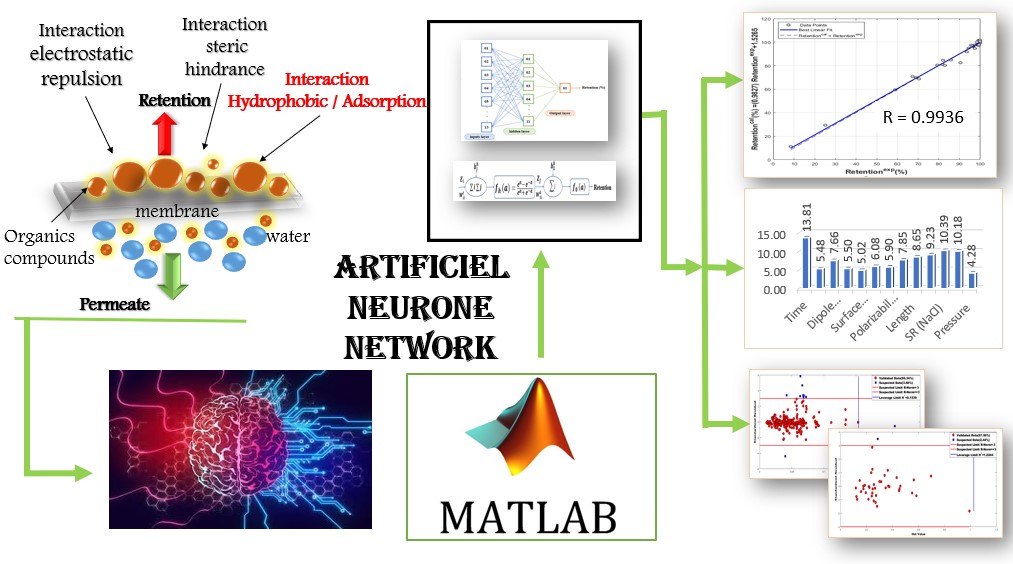
Understanding the retention of organic compounds (OCs) is critical for membrane applications in water recycling. The objective of this study was to create an optimized model using Artificial Neural Networks for Quantitative Structure-Property Relationship (QSPR-ANN) to predict the effect of adsorption on the retention of organic compounds (OCs) by nanofiltration (NF) and reverse osmosis (RO). An optimal model (QSPR-ANNoptimal) characterized by a similar structure (13 neurons in the inputs layer, 11 neurons in the hidden layer, and 1 neuron in the output layer) is constructed to predict the effect of adsorption on the retention of organic compounds by membranes. A set of 273 data points was used to test the neural network. the data set was used 70% for training, 15% for validation, and 15% for testing. For the most promising neural network model, the calculated retention values were compared to the experimental retention values, and good correlations were found (the determination coefficient "R2 = 0.9872" and the root mean squared error "RMSE = 2.2743%" for the test phase). This indicates the good robustness of the established QSPR-ANN model and the possibility of predicting the various parameters that characterize the retention of OCs by RO/NF. Sensitivity analysis revealed that the effect of adsorption retention of organic compounds by reverses osmosis and nanofiltration membranes depends more precisely on two important interactions (hydrophobic/adsorption and steric hindrance).
Total file downloads: 10